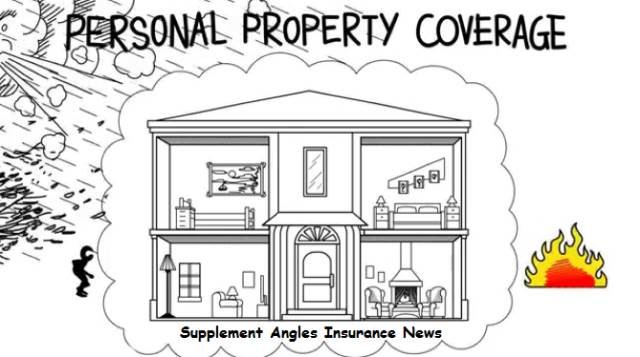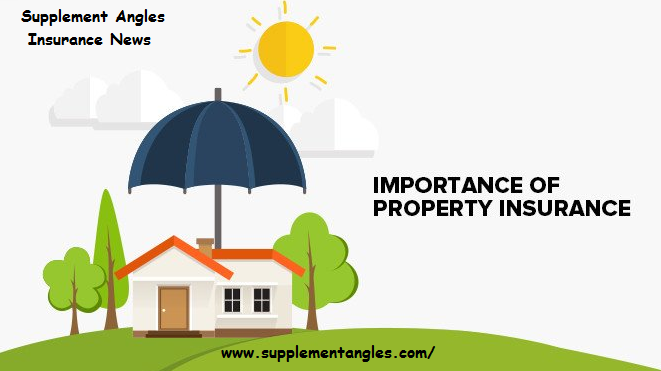In the case of an unforeseen home disaster, such as a burglary or fire, repairing or replacing your personal items can be difficult and costly. That is why it is extremely important to safeguard these valuables with Personal Property Insurance.
Personal Property Insurance is an insurance policy that can pay you for the cost of stolen, damaged, or destroyed goods in your house as a result of a covered occurrence. Several insurance companies offer Personal Property Insurance. In reality, Personal Property Insurance has been around for a long time and has done extremely well in its market.
Table of Contents
Do you know how your Personal Property Insurance operates?
First, before you suffer a loss, make an inventory of your personal property, replete with photos and the purchase price of each item. This can help to simplify the claim-filing procedure. Then double-check that you know what sort of personal property insurance you have:
A replacement cost insurance pays the monetary amount required to purchase a new item at the time of a claim, but an actual cash value policy covers the cost of repair or replacement minus depreciation. Finally, you should be aware that most Personal Property Insurance policies have restrictions on how much they will pay to replace an item or a group of goods. If the value of your belongings exceeds the policy limitations, you may want to consider larger limits or supplemental coverage to properly safeguard them.
As you examine your coverage limitations, a chat with an insurance representative may be beneficial.
Knowing what you possess and how your Personal Property Insurance works might help you save money and can give you comfort in the event of a loss.
The Great Benefits
Let’s move on to its Benefits now:
➡In an incident where your personal possessions are damaged or destroyed as a result of a covered loss, personal property insurance may be able to assist you.
➡ It covers those who have issues as a result of personal losses such as injuries, accidents, or property damage.
➡Fire insurance, flood insurance, earthquake insurance, house insurance, and boiler insurance are examples of specialist insurance. Property Insurance is of two types: open perils and named perils.
➡All causes of loss not explicitly excluded in the policy are covered by open perils. Damage from earthquakes, floods, nuclear accidents, acts of terrorism, and war are all common exclusions on open peril policy. For insurance to be given for named perils, the actual source of loss must be specified in the policy. Damage-causing occurrences such as fire, lightning, explosion, and theft are among the more prevalent listed dangers.
➡If property damage from a covered loss prohibits you from living in your home, plans may pay for other living arrangements (such as motels and restaurant bills) for a defined length of time to compensate for the “loss of use” of your house until you can return.
➡Removes the tension associated with thinking about one’s future. Personal property insurance is a long-term investment that may save you hundreds of dollars or more.
It’s Drawbacks
➡Property insurance, like many other things, has a negative side. To begin with, one of the most significant drawbacks of getting property insurance is that it may be quite costly to maintain. Because of low deductible payments, property insurance has a high monthly premium.
➡Furthermore, most insurance plans are extremely basic, and for your policy to be complete, you must add insurance for natural disasters, robbery, and other events. Maintaining all of these extras every month might be costly.
➡Automobiles are not covered by Personal Property Insurance. To protect your vehicle from harm, you’ll need comprehensive auto insurance. A renters or homeowners insurance, on the other hand, may cover the theft of an item from your automobile if you store it in your house. But, when it comes to property insurance, the benefits greatly exceed the drawbacks.
Claiming Personal Property Insurance damage – How to Claim?
Even though you don’t have all of the data you’ll need to make your claim, it’s critical to do so as soon as possible. You can begin reporting your claim right away by going online or phoning your insurance agent. Please keep the following information on hand:
- Your identity, address, contact information, and policy number are all required.
- What kind of damage to property claim are you filing? (wind, water, fire, robbery, etc.)
After that, you’ll be given an insurance agent who will:
- Collect data on the loss to your home.
- Explain your policy’s coverages as well as your deductible.
- If required, assist with scheduling a damage inspection.
- Damage estimation and restoration.
Some claims could be resolved over the phone. In the meantime, a claims agent may evaluate your property and estimate the cost of repairing the damage.
They will pay you under the terms of your insurance once your damages have been evaluated and approved by you. Unless you have a deductible.
FAQ

-
Are appliances covered under personal property or home insurance?
Yes. Plug-in appliances, such as a refrigerator are often considered personal property and would be protected under that policy.
2. What it usually doesn’t include?
High-value goods, such as collectibles and jewels, are generally not covered in full by this policy. Furthermore, most insurance does not cover things like floods, earthquakes, misplacement, or regular wear and tear. Because there are two types of personal property insurance, replacement cost and actual cash value, such occurrences and high-value goods may require specialist coverage. Make sure you review your policy to understand which coverage you have.
3. What does it cost to insure personal belongings?
Every home’s insurance policy includes personal property coverage, so you won’t have to pay more for it. However, if you have high-value possessions and low liability limits and decide to schedule things or add blanket coverage to your policy, your premiums will rise. Your insurance rates will also increase if you choose replacement cost personal property coverage over actual cash value.
4. Are cars enclosed under Personal Property Coverage?
No. To protect your auto from harm, you’ll need relevant auto insurance. However, if you normally store an item at your house, your renters or private insurance coverage may cover the theft of an item from your automobile.
5. What kind of Personal Property Insurance should I get?
For starters, create a home inventory to document all of your properties and what they’re worth to calculate a personal property coverage level. Keep in mind that some valuables, including jewellery, antiques, and other collectibles, have coverage restrictions under a basic policy. So, depending on the value of those goods, you may want to consider raising your restrictions. If this is the case, specific restrictions should be added. You can expand your coverage by itemizing personal property, such as your most valuable items.
The EndNote
It’s absolutely essential to have Personal Property Insurance, as well as the correct sort of policy for your purposes. Make sure your insurance covers your personal items and those of your family in the case of a loss. Determine your coverage level and insurance type by determining how much you can afford to spend out of cash.
Read About>>>> The Broker Insurance Agent: What You Need To Know
